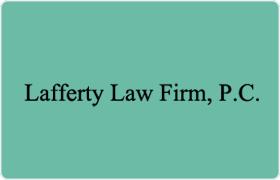Davidson County, TN Bankruptcy & Debt Lawyers
Sponsored Law Firm
-
 x
x

Click For More Info:
-
Lafferty Law Firm, P.C.
1321 Murfreesboro Pike Suite 521 Nashville, TN 37217» view mapBankruptcy & Debt Over 30 Years Of Experience
Susan S. Lafferty is a CPA and Attorney who enjoys helping people with financial problems. She is located in Nashville, TN where she has lived for over 30 years.
800-936-9071
Mary Beth Ausbrooks
✓ VERIFIEDBankruptcy & Debt, Consumer Bankruptcy
Board Certified Specialist in Consumer Bankruptcy
For more than three decades, the bankruptcy attorneys at Rothschild & Ausbrooks, PLLC, in Nashville, Tennessee, have been devoted to helping individua... (more)
Ben M. Rose
Business Organization, Collection, Consumer Protection, Contract
Status: In Good Standing
Michael B. Schwegler
Personal Injury, Litigation, Criminal, Bankruptcy & Debt
Status: In Good Standing
FREE CONSULTATION
CONTACTFREE CONSULTATION
CONTACTAdam Lafevor
Litigation, Federal Appellate Practice, Wills & Probate, Credit & Debt
Status: In Good Standing Licensed: 13 Years
Barbara Dale Holmes
Federal Appellate Practice, Juvenile Law, Bankruptcy, Professional Responsibility
Status: In Good Standing
C. Bennett Harrison
Dispute Resolution, Intellectual Property, Entertainment, Commercial Bankruptcy
Status: In Good Standing Licensed: 48 Years
C. Tucker Herndon
Transportation & Shipping, Wills & Probate, Business, Credit & Debt
Status: In Good Standing
Charles Ward Faquin
Bankruptcy & Debt, Litigation, Guardianships & Conservatorships, Social Security
Status: Suspended Licensed: 16 Years
 Susan Lafferty Nashville, TN
Susan Lafferty Nashville, TN Practice AreasExpertise
Practice AreasExpertise

